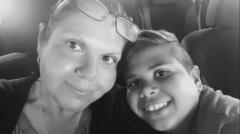Two men have been convicted of murdering 15-year-old Aboriginal schoolboy Cassius Turvey, whose violent death in October 2022 captured the attention and outrage of Australia. The Noongar Yamatji boy was pursued and assaulted by a gang of vigilantes after a series of unresolved grievances, a situation that escalated tragically as he was brutally beaten with a metal pole, ultimately leading to fatal head injuries.
The verdict, delivered after a lengthy 12-week trial, has brought mixed emotions to Cassius's family. His mother, Mechelle Turvey, expressed a sense of relief but reiterated that real justice remains elusive as her son can never return. Cassius's passing sparked a wave of vigils and protests across the nation, highlighting the profound grief and anger felt in response to his murder.
In this case, three men were implicated, with Jack Steven James Brearley, 24, and Brodie Lee Palmer, 29, found guilty of murder, while a third suspect, Mitchell Colin Forth, 27, was convicted of manslaughter. The trial presented harrowing evidence, including video footage of Brearley boasting about the attack. Prosecutors argued that the attack was motivated by a misguided quest for retribution due to prior damage to Brearley's car, in which Cassius had no part.
Other students who witnessed the brutal attack were left traumatized, with the incident serving as a grim reminder of the societal issues regarding violence and racial discrimination. The event has ignited discussions across Australia about racism, provoking a renewed look at the treatment of Indigenous communities.
Cassius was remembered not only as a victim but as a vibrant young man who sought to challenge stereotypes about Aboriginal youth through positive contributions to his community. His entrepreneurial spirit was evident as he and his friends launched a lawn-mowing service to help neighbors.
As Australia reflects on this tragedy, calls for justice and better understanding of Indigenous issues continue to resonate throughout the community. Cassius's legacy stands as a beacon for change amid the heartache, fostering a hope that future generations will find a path toward equality and respect.



















